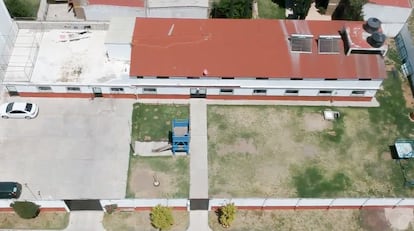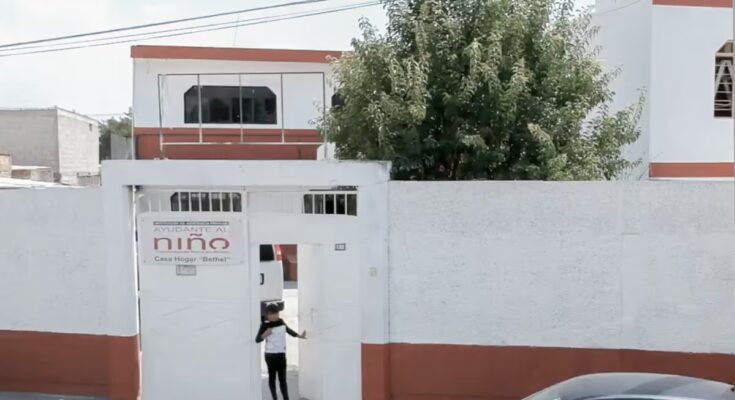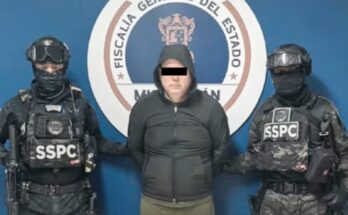Merlyn and Wanda Beeman arrived in Mexico in 1966. The purpose of their trip was to “evaluate how best to meet the needs and evangelize the people.” This led to the creation of the Niño de México program in 1967. The Beemans began welcoming orphans into their home in Mexico City, meeting their basic needs from food, clothing and shelter, to providing religious instruction and spiritual guidance.
For more than 50 years, the couple’s initiative, funded through contributions from churches and religious groups across the United States, expanded into a charitable organization that at its peak operated as many as eight foster homes in the State of Mexico and Puebla. However, the façade crumbled on November 12, when an investigation by Godly Response to Abuse in the Christian Environment (GRACE) uncovered evidence of decades of sexual abuse, physical violence, and psychological mistreatment of children and adolescents in these shelters.
The 256-page GRACE report details how Niño de México, a non-profit organization founded in Missouri, US, faced decades of complaints from victims, witnesses and staff against at least 20 former employees who allegedly sexually assaulted minors in their care. The investigation also highlights a suspected cover-up by its leadership and impunity for perpetrators. Following the release of the GRACE report, the organization announced the same day it was ending its operations in Mexico, “effective immediately.” Niño de México has operated for 58 years and, according to the board’s statement – which makes no mention of the report’s findings – “countless lives have been blessed by this organization.”
“Disturbing events” in homes
According to the investigation, the abuse began in 1968, when the Beemans purchased a center in the municipality of San Vicente Chicoloapan, in the State of Mexico, where 25 minors under their care married. These children lived in community, sharing meals, attending school together, and attending religious services. The couple also worked to raise funds through donations from the United States.
A witness claims to have witnessed “disturbing events” involving teenagers aged around 17. The same witness says the children spoke openly about the Beemans’ sexual abuse. The couple’s pattern of abuse primarily targeted young people between the ages of 14 and 17. Those who tolerated the abuse received privileges, such as better clothes and private rooms. Furthermore, overcrowding in homes meant that up to three children shared a single bed.
Another survivor said the Beemans used religion as a tool to control and manipulate children, while acting in ways that undermined their beliefs. Operation Niño de México expanded to homes located in Huexotla and Texcoco, State of Mexico, where children were separated by gender in adjacent buildings, as well as Cholula, Puebla.
Following a series of complaints in 1978, the couple, along with 12 or 13 children, suddenly left Mexico under pressure from authorities and church members who supported the mission. “The Beemans’ decision to take these children suggests a possible attempt to maintain control or hide information about the situation in Mexico,” the report reads. Donald and Viola Bader have taken over as executive directors of Niño de México. They responded to the accusations against their predecessors. According to one witness, they accused the children of having had sexual relations with the Beemans and called them the “perverts of the world.” Wanda Beeman is dead, while her husband, Merlyn, has denied the allegations and declined an interview request from GRACE.
During the 1980s, sexual abuse, physical violence, and psychological mistreatment became common practice in the other homes that were part of Niño de México. From the 1980s through the early 2000s, Fidel Núñez, Fernando Soriano and his wife Martha, Jesús Ríos, and Salvador Carrizosa served as caretakers and during that time faced numerous reports of sexual abuse against girls and teenagers in the program. The investigation finds that these abuses and complaints occurred during Terry Stine’s tenure as the institute’s executive director, a position he held from 1987 to 2007. “There were times when children would manipulate situations to get people into trouble, and these would be investigated by the psychologist, to no avail,” Stine said in an interview for the GRACE investigation.
Other alleged perpetrators, such as Israel Ávalos and Noé Flores Floriano, were added to the list of names in the early 2000s in Niño de México. Ávalos was reported for severely beating children in their rooms, while Flores Soriano, one of the first children to participate in the Niño de México program in the 1960s, joined the institution in 2000 as a doctor responsible for the health of minors.
Various complaints accuse him of having diagnosed children at the center without the presence of a responsible adult and of having exhibited “strange behavior” during these tests. According to one report, he began by “licking and sucking” the children’s faces. He later sent pictures of his genitals to girls and eventually began abusing them during consultations. Flores Soriano remained in the institution until 2016, when he was finally dismissed due to his conduct.
A stick with a Bible verse
Among the punishments described, the report said children were forced to stand in the sun for long periods while carrying heavy concrete blocks, confined to a dark warehouse for hours without food, or forced to stand with their noses against the wall.
One specific name mentioned is Luis Escutia, who also spent part of his childhood in Niño de México. “One particularly painful form of punishment involved the use of a wooden stick or ‘wand’ engraved with a Bible verse, which parents used to hit children on the buttocks or hands,” one victim recalled in the report. The investigation finds that these punishments, administered by several custodians – including Luis Escutia and others – appeared to perpetuate the disciplinary methods they themselves had experienced within the institution.

An investigation by Mexican authorities implicated a total of seven alleged abusers. Among those accused, only five formal investigations were opened, which led to the arrest of Javier Colocia, formally accused of sexual crimes against minors in Mexico in 2022.
That same year, a former American intern who had worked at Niño de México filed a formal complaint with the board of the organization, led by Steve Ross since 2012, which had for decades ignored allegations against its staff at shelters. The response this individual received from the board regarding the atrocities he witnessed within foster homes was: “The board and staff will review each of the cases presented to ensure that actions taken in the past have been effective and will also consider what further actions may be necessary. External consultants will be consulted if necessary.”
In July, Mexican state government officials raided Niño de México facilities, confiscated documents, and removed 37 minors from orphanages. According to the Attorney General of the State of Mexico, the procedures revealed potential violations of the rights of children and adolescents. As a result, the authorities immediately secured the homes known as Jireh, Bethel, Genesis, Hope, and Agape.
The minors were placed under the custody and protection of the System for the Integral Development of the Family of the State of Mexico. The local office of the Human Rights Commission was also present during the operation to ensure that the rights of all those involved were protected.
Sign up to our weekly newsletter to get more English-language news coverage from EL PAÍS USA Edition



